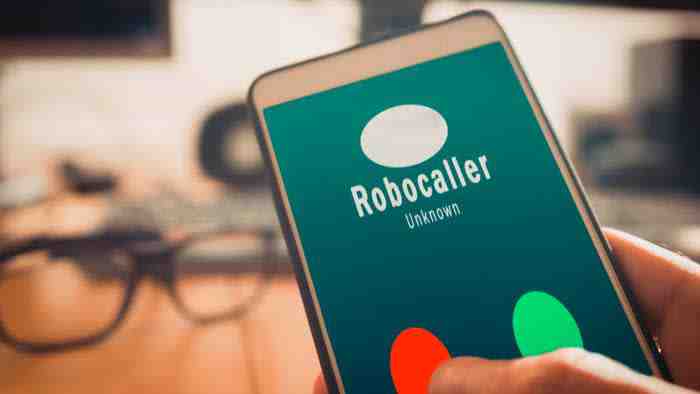If there is one thing that every person regardless of race, religion, or political stance can get behind, it’s that we all hate robocalls.

This hatred has gotten so apparent that even the FCC has taken action to stop them. However, many of us have still taken matters into our own hands by downloading apps to block robocalls.
Unfortunately, according to an article from TechCrunch, some of these apps are compromising our privacy as soon as we download them. The robocall apps Hiya, TrapCall, and Truecaller all were selling user data to third-party analytics companies.
How serious is this?
Apps stealing your data is nothing new , but that doesn’t mean that it’s not an issue. Hiya and Truecaller were selling information about your phone such as the model and software, which is in direct violation of Apple’s App Store guidelines.
Although these three apps were the ones called out most in the TechCrunch article, they are not the only offenders. Many robocall blocking apps immediately send some data to Facebook as soon as you hit the download button.

How to stop robocalls from blowing up your phone
Robocall blocking apps are nice, but you are still running a risk no matter which one you download . Basically, if it sounds too good to be true, it probably is.
I have one of those apps! What should I do?
Fear not! There are plenty of robocall blocking apps that you can download that won’t sell your data. Again, you just have to ask yourself if it is worth the risk.

If you’re done with these apps altogether and want to make sure you are protected, there are some things you can do. First, you should uninstall the app in question . Once it is uninstalled, use an app like PhoneClean to make sure all traces of it are gone.
The next thing you should do is run a virus scan. Even if the app is gone, there is always a chance that something is happening in the background to send data to third-parties.
Once you’re done running a virus scan, restart your phone . If the scan found something, restarting your device can make sure that everything malicious caught by the virus scan is gone.
Wrapping up
Look, we all hate robocalls. If we get one more fake call telling us about a car warranty we don’t have, then we might just throw our phone out the window. However, this doesn’t mean that we should pursue a method of blocking robocalls that can potentially do more harm than good.
As stated before, the FCC is working on a way to block robocalls for good . It is probably in your best interest to wait until that plan is unveiled before you go seeking your own solutions.
Read more
New scam spotted on the Google Play Store ►
Security alert: new Netflix phishing scams ►
This ingenious phishing scam is targeting iPhone users ►
New year, new scams: what to watch out for in 2019 ►











